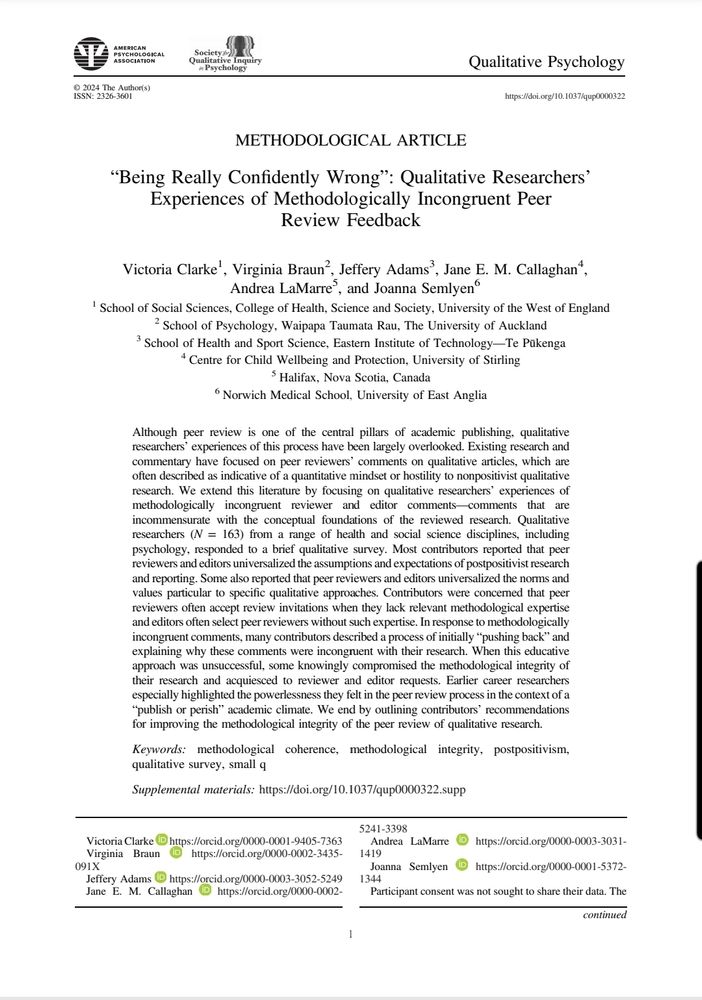
Qual researchers: qualitative research isn’t meant to be generalizable, and concepts like reliability and replication are positivist (or something)
Me confidently: you want me to put stock in unreliable measurement of non-generalizable information that will never be replicated?
w/ @ginnybraun.bsky.social @jeffnz.bsky.social @janeemcallaghan.bsky.social @andrealamarre.bsky.social & @joannasemlyen.bsky.social
psycnet.apa.org/fulltext/202...

Qual researchers: qualitative research isn’t meant to be generalizable, and concepts like reliability and replication are positivist (or something)
Me confidently: you want me to put stock in unreliable measurement of non-generalizable information that will never be replicated?
x.com/iliahashemic...
x.com/iliahashemic...
open.substack.com/pub/michaeli...

open.substack.com/pub/michaeli...
I heard it so many times. And the bullshitters convince the rest of us we're doing it wrong somehow.

www.zurinstitute.com/webinars/und...

www.zurinstitute.com/webinars/und...
Frank Sinatra, son of Italian immigrants Antonino Sinatra and Natalina Garavanta
Merry Christmas to everyone except Stephen Miller and his enablers and handlers

Frank Sinatra, son of Italian immigrants Antonino Sinatra and Natalina Garavanta
Merry Christmas to everyone except Stephen Miller and his enablers and handlers
I also shared a bit with @willgervais.com when he asked me about it for his students. I think it's especially important to teach junior people how to engage with ideas.
between statements about the world.
See section 3 here: doi.org/10.5281/zeno...
4/

Her crime: witnessing ICE, from a distance.

Her crime: witnessing ICE, from a distance.
www.nytimes.com/2025/12/03/m...
www.nytimes.com/2025/12/03/m...



Now, Trump has called for my execution because he didn’t like what I had to say.
Gabby and I know, when others try to silence you, you must keep speaking out — and that’s exactly what we’re going to do.
Now, Trump has called for my execution because he didn’t like what I had to say.
Gabby and I know, when others try to silence you, you must keep speaking out — and that’s exactly what we’re going to do.
Trump doesn’t understand the Constitution, and we're all less safe for it.
Trump doesn’t understand the Constitution, and we're all less safe for it.


Jew hatred antedates modern constructions of wh*teness by literally thousands of years. It's cannot be understood or effectively countered solely in terms of contemporary racial politics.
Jew hatred antedates modern constructions of wh*teness by literally thousands of years. It's cannot be understood or effectively countered solely in terms of contemporary racial politics.


